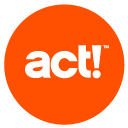CRM for Small Business: they easy way to improve your customer satisfaction
We understand how important an asset customer relationship management (CRM) can be for small businesses. CRM helps small businesses increase sales every month, drive growth and provide outstanding customer experience to set yourself apart from competitors.
That’s why we have decided to guide you through the many CRM systems available on the market, each with their own set of features and benefits.
To give you the most comprehensive overview of top CRM systems out there, we have based our guidelines on functionality and usability, while also considering pricing. We hope this guide helps your small business find the ideal solution to grow and flourish.
Benefits Of CRM For Small Businesses: Here Is Why You Need CRM
Small businesses face their own challenges and opportunities for which they need appropriate tools.
In the past, CRM software was targeted at enterprise-level companies. Fortunately, that’s no longer the case. Many CRM software programs now offer small organizations the opportunity to implement CRM without going over budget or having to go through intense training. This is great news as we know CRM can do wonders for small businesses.
Small businesses are composed of smaller teams. This means they have a greater need for optimization from a digital source. CRM software helps small businesses organize workflows, be more functional and productive, save money, and raise revenue.
Small businesses are also naturally more agile than bigger, more complex organizations. They can make quicker decisions, implement faster, and efficiently use the benefits of CRM at high level.
The list of benefits of CRM for small businesses include:
Improved Pipeline Performance
CRM stores and centralizes all the information you’ve collected on leads and customers. This way, your teams have easy access to all the information they need to follow up more efficiently and quickly. CRM allows your teams to speed up your sales pipeline by pushing prospects down the funnel faster.
Productivity & Revenue Boost
CRM helps your small business organize workflows, be more efficient and communicate better.
It also allows you to automate repetitive and time-consuming tasks and reduce them to a single click. These tasks include acknowledging customer inquiries with a follow-up email, sending a personalized email for a customer’s birthday, sending out invoice reminders, sending a follow-up email to a new contact, creating reports… among many others.
The ability to streamline workflows makes everyday work lighter, freeing up resources for growth. It gives your teams more time to focus on high-value missions like lead development, lead nurturing, and personalized phone calls directed at leads for example.
By improving processes, CRM helps your small business get tasks done on time, reduce miscommunications and down the line, close more deals and increase revenues.
Customer Satisfaction
CRM has the ability to track each and every activity of leads and prospects as well as past interactions. All the valuable information collected in the process helps your business offer personalized services and outstanding experience to your customers. CRM also helps you identify customer concerns, needs, and desires so you can respond with the appropriate action.
Overall CRM tools help your small business enhance customer satisfaction and retention, which is key to setting yourself apart from competition.
Valuable insights
CRM can organize all the collected information into reports for you. Not only do you gain time by automating reports, but this process also leaves biases and human errors out of the equation.
Detailed data-based analytical reports and forecasting available in CRM software help you gain valuable and accurate insights. This will help you and your teams identify opportunities, make decisions and strengthen your small business.
What to look at to choose the CRM that suits your business size
Knowing what you can expect from CRM tools will help you choose the right system for your business. When comparing CRM platforms, make sure you check the following elements.
Usability
You want your CRM to be user-friendly, as learning how to use a new complex platform can be time-consuming (not to mention a headache). Usability and simplicity should be key factors.
Customization
The possibility to customize features and tailor your CRM to suit your specific small business needs is another key factor. You want to be able to add and modify contact information as well as opportunity fields. Setting up your CRM to fit your processes increases user adoption, internal efficiency, and sales.
Automation
It is very important for CRM systems to offer automation features. Automating repetitive tasks will help team members free-up a lot of time to focus on valuable brain-engaging work. Automated tasks can include data entry, customer emails, follow-ups, and information field updating.
Vendor customer support
Small businesses sometimes have to deal with a lot of work without having many resources to do so. As a small business, you probably don't have the time (or a large IT team) to manage IT issues. It is important to make sure the CRM you choose provides great customer service and can resolve technical issues quickly, as well as answer your questions.
Affordable pricing
Price is obviously a key factor for small businesses when choosing a CRM. If you’re not sure CRM can help your business thrive (but trust us, it will) or if you’re on a budget, you might want to consider starting with a free CRM software, or a CRM system that offers a free trial.
Detailed Reporting
Analytical reporting is a key CRM feature. When investing in a CRM system, make sure it provides robust reporting capabilities. Extra Bonus point if it allows customization according to requirements so you can highlight the most relevant metrics.
Tools to Build Relationships
Your CRM should provide enough good tools for you to engage efficiently with customers across different channels, touchpoints and internal teams (marketing, sales & customer services). This will help you nurture relationships, attract new customers, offer extensive support, enhance customer satisfaction and retention and close more deals.
9 Best Small Business CRMs in 2024
Salesforce Sales Cloud
Salesforce Sales Cloud is a cloud-based, fully customizable CRM platform that is suitable for companies of any size. It is designed to support sales, marketing, and customer services in both business-to-business (B2B) and business-to-customer (B2C) domains. This is a very comprehensive platform.
Pros & Cons of Salesforce Sales Cloud
Pros
- Provides AI-driven insights which help you make smarter decisions based on historical sales channel data.
- Integration: this software supports integration with several tools and various organizational departments.
- Adapts to business needs and current processes. Customizations include forecasting and sales stages, reports, and dashboards with modifiable charts.
- Centralized client database, with powerful data management.
- Goog tracking abilities: opportunities, leads, sales, clients, invoices, campaigns, contracts, and more.
Cons
- Salesforce Sales Cloud is on the higher side of prices which can be an obstacle for small businesses.
- The system can be slow to load at times.
- It can take quite some time and training to learn how to navigate the interface (but once you get it, it is pretty easy to use).
Key features of Salesforce Sales Cloud
- Contact Management.
- Opportunity Management.
- Lead Management.
- Reports and Dashboards.
- Drag-and-Drop Process Builder.
- Mobility.
- Email Integration.
- Sales Collaboration.
- File Sync and Share.
- Territory Management.
HubSpot CRM
HubSpot CRM is an integrated tool that facilitates smart teamwork and helps businesses track, organize and close sales seamlessly. It provides sales, marketing, and customer service CRM functionalities for businesses of all sizes. This easy-to-use, unified platform provides robust workflow management automation, which is ideal for small businesses.
There is a free forever edition that is particularly helpful. Small businesses looking for marketing and customer management at no cost will find HubSpot CRM a solid option.
Pros & Cons of HubSpot CRM
Pros
- Excellent customer support as well as training support.
- HubSpot can be easily integrated with many other apps and solutions that ease automation and help small teams grow and optimize operations.
- This software is user-friendly and easy to navigate.
- Good workflow management that helps with lead and customer follow-ups.
Cons
- You need to pay additionally to get extra functionalities for marketing and service tasks.
- Integrations are primarily beneficial for e-commerce businesses, but not as helpful for other types of businesses.
- Limited functionality of the mobile app, which doesn’t optimize mobility.
- It could be interesting to add more tabs to the filters section.
Key features of HubSpot CRM
- Pipeline Tracking.
- Monitoring.
- Email Tracking and Notifications;.
- Email Templates.
- Scheduling.
- Reporting.
- Live Chat.
Maximizer CRM
Maximizer CRM is an integrated CRM suitable for businesses across various industries. This software provides simple, accessible customer relationship management solutions for small and medium-sized businesses. It offers sales, marketing, and customer service teams access to customer information through a web browser, a mobile device, or on their desktop, on-premise, and in the cloud.
Maximizer CRM features sales management, marketing automation, customer service and support, and business productivity tools with integration with Microsoft products such as Outlook, Word, Excel, and SharePoint.
Pros & Cons of Maximizer
Pros
- The software is highly customizable and fits well for each business solution.
- Excellent value for the cost.
- Outlook integration to save all outlook correspondence in the database.
- The platform is pretty easy to use, easy to adapt to, and quite intuitive.
Cons
- Integration: The system is not the best for email integration functionality, and offers minimal integration with other technology.
- Data is easily duplicated or partially loaded.
- Increasing the ability to make adding graphics would be very helpful.
Key features of Maximizer
- Customer Insights.
- Sales Management: sales pipeline management, contact management, pipeline visibility, partner relationship management.
- Marketing Automation.
- Third-Party Integration.
- Mobile App.
- Deployment Options: Gives the option for both cloud and on-premise deployment.

Maximizer
Zoho CRM
Zoho CRM is a cloud-based, AI-powered, omnichannel CRM used by businesses of all sizes across industries. It helps them better control their sales, marketing, analytics, and business development operations.
This platform provides businesses with plenty of features such as lead and contact management, sales pipeline management, opportunity tracking, and data analysis at an affordable price. This CRM is great for small businesses and start-ups.
Pros & Cons of Zoho CRM
Pros
- Good free tier, full of possibilities.
- Good mobile app.
- Different templates for different industries, possible to adjust it with Zoho Creator.
- Equipped with offline mode which helps businesses cater to customers anytime, anywhere without limitations.
- Platform functions well even when used in offline mode.
Cons
- Interface is not so user-friendly and not very adaptive.
- UI not always very intuitive.
- Would be great if more customizations were possible.
- Automation not yet the best as it is limited to the enterprise version which restricts productivity.
- Zoho’s customer support and inquiry resolution aren’t very responsive, but the chat support is good.
Key features of Zoho CRM
- Sales Force Automation.
- Process Management.
- Multichannel Support.
- Sales Enablement.
- Performance Management.
- Marketing Automation.
- Team Collaboration.
- Third-Party Integrations.
- Strong security measures.

Zoho CRM
Pipedrive
Pipedrive is a great solution for small businesses. It is designed to help organizations with every phase of the sales process, from lead generation to customer contact.
Among other things, it has forecasting features designed to help sales representatives be more efficient and close more deals. Team members can also use AI capabilities and CRM automation to simplify and streamline tasks. Pipedrive offers integrations and an open API, so companies can plug in third-party apps to further extend its capabilities, which is great.
Pros & Cons of Pipedrive
Pros
- Pipedrive offers a free plan that provides a great range of tools for you to test their software.
- Great to monitor sales pipeline and track progress of each lead and customer.
- Great to track and display the growth of leads, and opportunities.
- Easy-to-use mobile application for easy access anytime, anywhere.
- Calls and emails auto-tracking.
- Tracks your performance data so you have a clear idea of what areas you are successful in or need to allocate additional resources to.
Cons
- Email integration, browser extensions, and workflow automation could be better designed.
- Customization could offer more options to tailor to each business specifically.
- Drag-and-drop deal management can be tricky.
- Quite expensive.
Key features of Pipedrive
- Lead Management.
- Contact Management.
- Web Forms.
- Leadbooster Chatbot.
- Activity Management.
- Sales Forecasting: Individual views and forecasting views.
- Integration with dozens of other apps.
- Marketplace: Supports dozens of third-party plugins.
- User Access Control.
- Data Security.

Pipedrive
ClickUp
ClickUp is a cloud-based collaboration and project management tool. It is suitable for businesses of all industries and is great for small businesses.
ClickUp is particularly suited for team collaboration, as it includes communication and collaboration tools, task assignments and statuses, alerts, and a task toolbar.
Team members can assign tasks and comments to a specific team member or several. Assigned tasks can be marked as in progress or solved, which is very useful to keep track of team work. You can also create custom statuses to fit the needs of your business teams.
On an individual level, each team member can see which tasks have been assigned to them.
Pros & Cons of ClickUp
Pros
- All-in-one user-friendly platform: easy to use and straightforward, enabling users to plan, track, and manage any type of work for any type of team.
- Multiple views and filters to meet specific needs.
- Good for creating full workflows for projects and systems.
- Tasks can be interconnected with projects and relevant documentation, so everything is clear. This helps with team productivity.
Cons
- Dashboards not customizable enough.
- It would be good to see more automation capabilities.
- Low platform reliability and slow performance at times.
- The android app could be better.
Key features of ClickUp
- Project & Task Management.
- Resource Management.
- Scheduling.
- Workflow Automation.
- Team Collaboration.
- Support for Agile Methodology.
- Document Management.
- Email integration.
- Mobile Access.
- Timesheet Tracking.

ClickUp
Freshsales
Freshsales is a cloud solution suitable for small and medium businesses across different industries. Being one of the sales management and customer engagement offerings from Freshworks, it is designed to provide all the features you need for lead management, customer engagement as well as sales management. For example, it gives you access to chronological timeline views of customer journeys and AI-based lead scoring.
Freshsales interface is pretty easy to use and intuitive. The free plan doesn’t include all the useful features we’d like it to, but overall, we would say Freshsales is particularly good for lead management and has a lot to offer. It can be a good choice for small businesses.
Pros & Cons of Freshsales
Pros
- FreshSales is very visual and intuitive.
- Efficient with lead management as it helps generate, track, upload, convert, research, and organize leads effectively.
Cons
- Integrations with other Freshworks products and Zapier are helpful, but important third-party integrations such as LinkedIn and Hubspot are missing.
- Although a free plan is available, it doesn’t include a lot of options, you will quickly have to pay for advanced features.
Main features of Freshsales
- Smartforms.
- 360-Degree Customer View.
- Velocity Reports.
- Revenue Analytics.
- Push Notifications.
- Custom Reports.
- Auto Profile Enrichment.
- Email Tracking.
- Deal Status.
- Visual Sales Pipeline.
- Third-Party Integrations.
- Mobile App.

Freshsales
monday.com - monday sales CRM
monday sales CRM is a cloud-based solution that helps businesses improve their sales processes and manage their end-to-end sales by making it easy to visualize the sales pipeline. In one unique platform, team members can access sales, customer, and company data, which can be a real time-saver.
Monday sales CRM is particularly good for team coordination as it allows sales teams to manage multiple sales funnels, update deal stages, and add columns to the interface. They can also quickly visualize real-time business-critical metrics and gain valuable insights on the dashboards. It also has other useful capabilities such as lead management, contact management, automation, and native integrations.
Pros & Cons of monday.com CRM
Pros
- Project flexibility & visual appeal, easy to organize and understand.
- Customization options that enable different teams to track their progress.
- Free plan provides everything small businesses need to organize projects and manage clients on a smaller scale.
Cons
- Automation can be slow.
- Security features are limited to the Enterprise plan.
- The mobile app isn’t as user-friendly as the website version .
Key features of monday.com CRM
- Activity Management.
- Emails: communication management, automated alerts, personalized interactions via customizable templates, automated backups to prevent data loss...
- Customizable dashboards.
- Lead Management.
- Automation: reminders for upcoming deadlines, automated assignment of leads to the right sales rep, emails sent automatically on due dates…
- Integration with third-party solutions, including Dropbox, Slack, Microsoft Teams, Zoom, LinkedIn, Zapier, Mailchimp, SurveyMonkey, and GitHub.
- Collaboration.
- Deal Management.

monday.com
Act!
Act! is a contact and client management tool that helps centralize all information related to prospects, leads, opportunities, and clients. It stores contact details, account history, interactions, notes, and activities.
It is cost-effective and available both on-premise and with cloud hosting which makes it a good fit for small businesses. This tool makes it easy (and cheap) to set up sales and marketing automation to support your business growth through sales, engagement and retention.
The UI is a bit outdated but if you’re a small business on a budget, it is overall a good system to helps you eliminate manual tasks and monitor team work.
Pros & Cons of Act!
Pros
- The system is intuitive, leading to easy adaption.
- The cloud upgrade allows users to seamlessly sync their data and helps avoid manual data saving.
- Platform fields are highly customizable, enabling flexible functionality.
Cons
- Customer service could be better and faster at responding.
- A few issues with bugs and responsiveness that can make the application less responsive and hamper performance.
- Not the best platform design.
Key features of Act!
- Customer Management.
- Account Management.
- Dynamic Groups and Filters.
- Opportunity Tracking.
- Task and Activity Management.
- Sales Process Management.
- Sales Engagement Tracking.
- Sales Pipeline Management.
- Call Lists and Hot Leads.
- Analytics and Reporting.
- Marketing Automation.
- User Management.

Act!
Comparison of top CRM software features
1 of 7
 Zoho CRM |  Pipedrive |  Maximizer |  ClickUp |  Freshsales |  monday.com |  Act! |
|---|---|---|---|---|---|---|
| For all companies | For companies with 1 to 5000 employees | For all companies | For all companies | For all companies | For all companies | For companies with 1 to 5000 employees |
|
|
|
|
|
|
|
| See software | See software | See software | See software | See software | See software | See software |
| Learn more about Zoho CRM | Learn more about Pipedrive | Learn more about Maximizer | Learn more about ClickUp | Learn more about Freshsales | Learn more about monday.com | Learn more about Act! |
CRM For Small Business: Your Key Take-Aways
When implemented properly, CRM helps small businesses increase sales, drive growth and deliver an exceptional customer experience. That's why it's essential to choose software that meets your specific needs, as the CRM systems available on the market all offer their own features and benefits. But once you know how to use CRM, chances are it will be a fantastic asset to your small business.